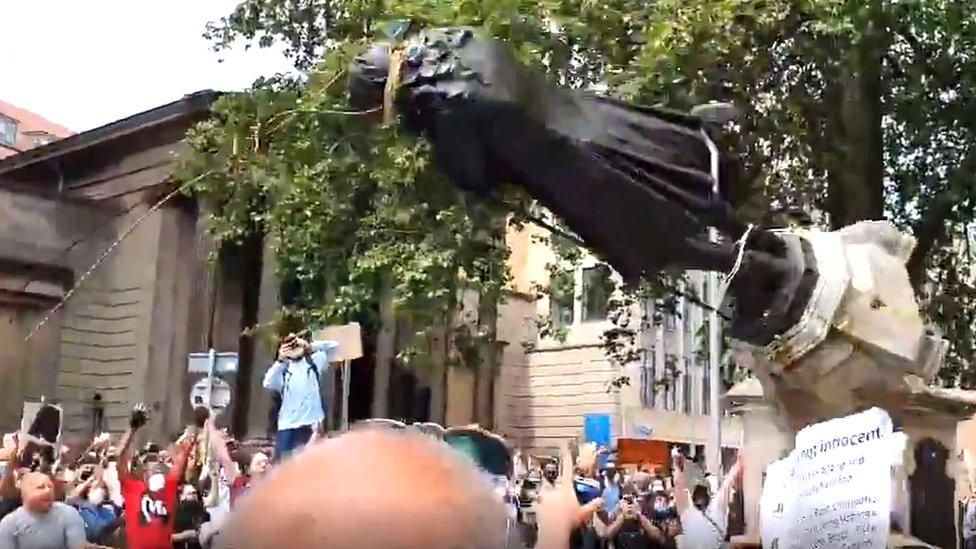Racist memorial to slaver to be replaced by Dorset church
- Published
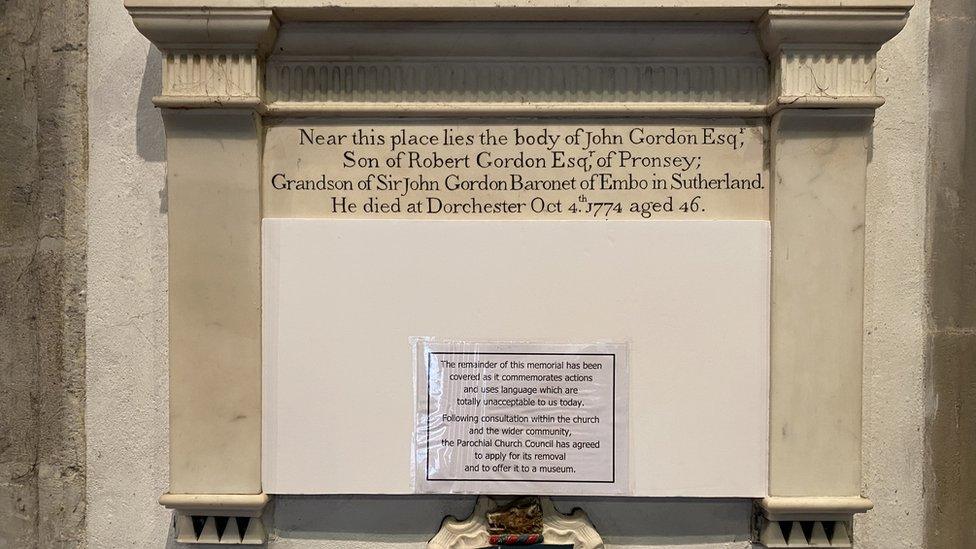
A cover was placed over the plaque in September 2020 while the church sought permission to remove it
A plaque commemorating the life of 18th century slave owner John Gordon is to be replaced with another stone bearing only his basic details.
The existing monument at St Peter's Church in Dorchester uses a racist term and praises Gordon for his role in the deadly quelling of a slave uprising in Jamaica.
Campaigners said reinstating a memorial to Gordon was a "missed opportunity".
The church said it had "no objection to a marker" for the slaver.
In September, following a two-year process, the chancellor of the Diocese of Salisbury granted permission for the stone's removal. Part of the judgement was that it should be replaced.
Church warden Val Potter said local stonemasons and a specialist plasterer had been tasked to do the work which was awaiting final approval by church authorities.
She said: "We had no objection to a marker for him, but the explicit actions praised on his memorial were what was unacceptable in a church saying that all are equally loved and valued by God."
The church covered stone and took steps to remove it in September 2020, following calls from anti-racism campaigners.
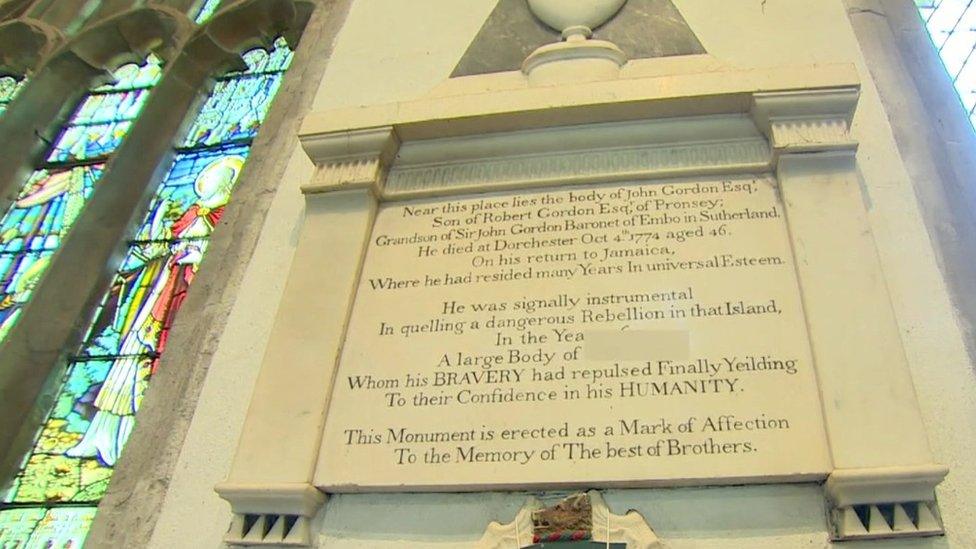
The stone, which has now been covered, uses racist language to hail John Gordon's part in the deadly suppression of slaves
David Rose, of Stand Up to Racism Dorset, said: "I have to congratulate the church council and church warden for persisting in navigating through the church bureaucracy.
"It really isn't our place to tell the church what they can have on their walls but we are disappointed really.
"Maybe we could have put a memorial to local people who served as health workers and other essential workers during the Covid pandemic.
"To fill it with a memorial to John Gordon seems a perverted idea of what's important."
Work to remove the monument is being funded by an anonymous donor. It will be stored in Dorset Museum.
The plaque was installed after the 18th Century slaver died in Dorchester in 1774, aged 46, during a visit to England - he was Scottish by birth.
It hails his "bravery" and "humanity" for his "instrumental" part in quelling the 1760 uprising when up to 500 slaves were killed across Jamaica.

Follow BBC South on Facebook, external, Twitter, external, or Instagram, external. Send your story ideas to south.newsonline@bbc.co.uk, external.
Related topics
- Published1 September 2022

- Published29 September 2020

- Published24 September 2020

- Published24 September 2020
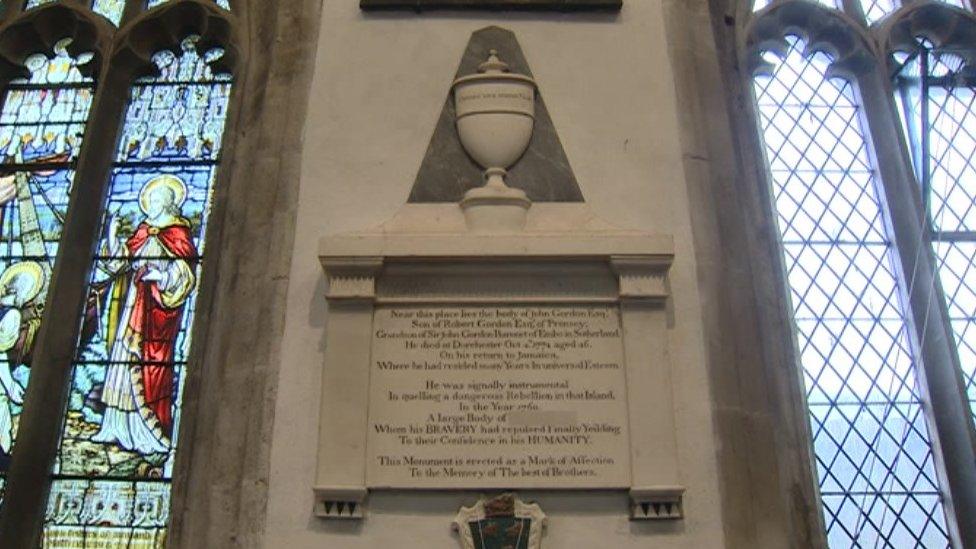
- Published7 July 2020
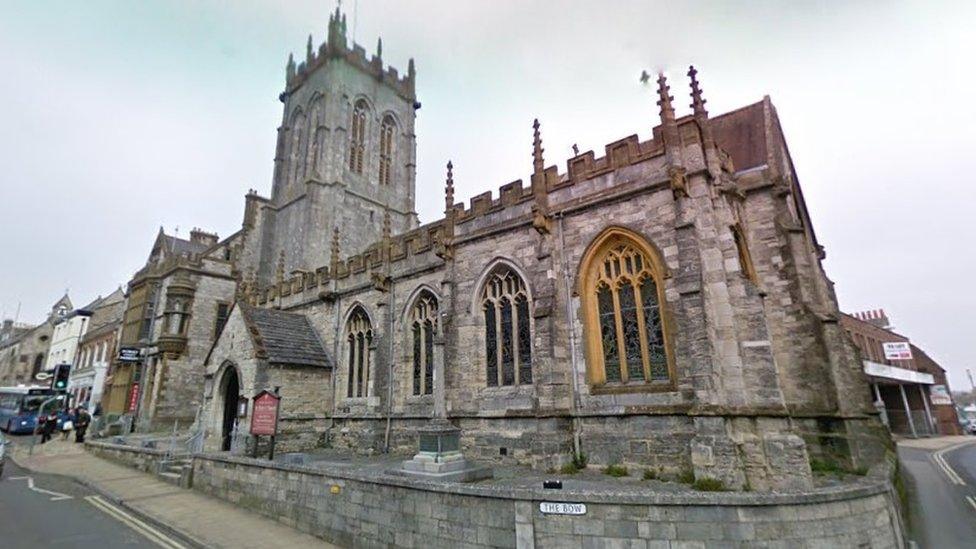
- Published8 June 2020
